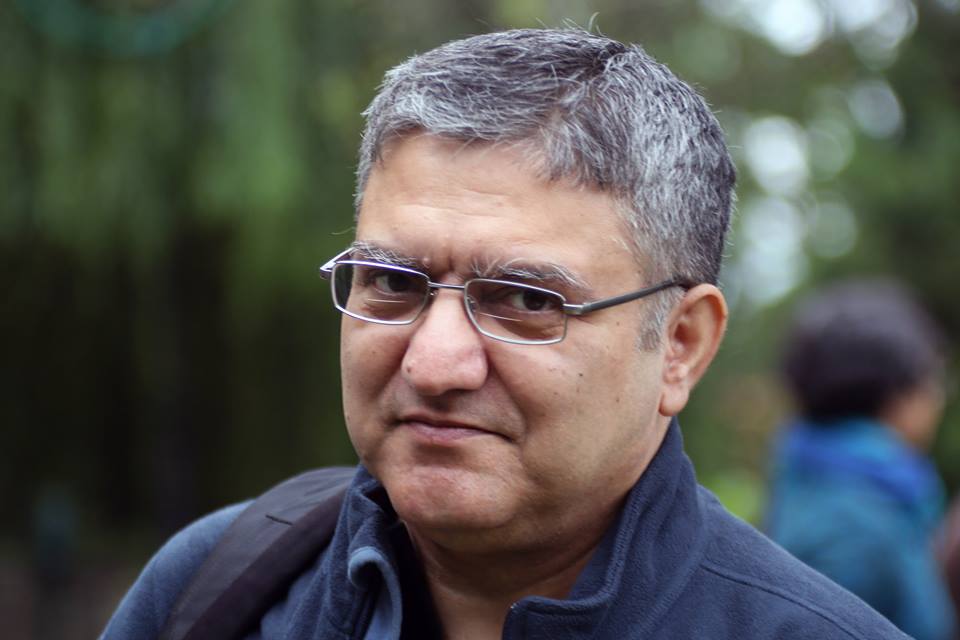Reading the Economic Survey 2016-17: Academic detachment does not help matters

The preface to the Economic Survey 2016-17 attempts to define the role and content of the survey by paraphrasing economist John M Keynes and thereby sets the tone for the document as a whole - distant, detached, academic with occasional politically correct assertions and patches of purple prose and hyperbole - characteristic of the literary minded Indian bureaucrat.
The one underlying theme that needs a close and critical look is the repeated insistence that meeting the diverse and difficult economic challenges facing India "..... is not just a matter of overcoming vested interests; it may also require broader societal shifts in ideas and narratives."
This can, in simple terms, be translated as - 'What to do sir, we are like this only' or 'When society is structured in a certain manner there is little that the elected political leadership and their bureaucratic associates can do to change things. A larger change must first occur.'
This is a very clever way of abandoning the responsibilities of leadership for bringing about the change that is required by tackling vested interests head on.
As the survey states in the context of the vision for modern India "........ what is the vision? This is a question not for any one government or party but for the broader Indian ecosphere of ideas."
One can argue that the task of leadership is to lead in every sphere including the 'ecosphere of ideas' however that may be defined.
Keeping it objective
One advantage of the academic perspective - the distant perspective of big data, macro models and international comparisons based on large regressions - is cold objectivity and here the survey is full of educative observations and insights.
It categorically states, and backs up with data, that welfare spending in India suffers from serious misallocations.
It further asserts that the capacity of the State to deliver essential services, especially in education and health, is poor, there is a reluctance to privatise, an 'ambivalence' towards the private sector, 'abundant caution' in bureaucratic decision making, and an agricultural sector that is bogged down in dysfunctional regulations - a legacy of the socialist era.
Such observations raise hopes on the ground that if the problems are so clearly known, the solutions must follow.
The problem, however, is that the survey does not convey any policy intention; there is no statement of commitment to solving anything or even identifying specific actionable items.
There is, however, one notable exception to this distant academic approach. There is a chapter on the idea of Universal Basic Income (UBI) where the major issues involved are examined in considerable detail.
However, that chapter too ends with the very careful, cold observation that - "UBI is a powerful idea whose time, even if not ripe for implementation, is ripe for serious discussion."
Can one 'afford' detachment?
Such detachment is simply not acceptable. The idea is well established and discussed in academic literature.
What should be discussed are the modalities for implementation, the nuts and bolts, the preparations needed, the time required etc. Lord Keynes, a man of action in many ways, would certainly not have approved of such detachment from the world of action!
The chapter on demonetisation is a mix of the academic and the political - a very bureaucratic approach. Two statements are interesting in this context. "The broad conclusion is that demonetisation will create short-term costs and provide the basis for long-run benefits" and "...these costs are transitory..."
The phrase 'provide the basis for long-term benefits' is seriously conditional and a simple assertion.
How this policy will serve to curb corruption and eliminate the motivations for and processes of generating 'black 'or untaxed wealth are not explained.
That the costs of demonetisation are 'transitory' is self-evident, but the implication of losing a few months of income is something that the authors have presumably never had to suffer personally, else the cool objectivity underlying the observation of 'transitory costs' would perhaps be hard to maintain.
The survey makes much of India's demographic dividend but mentions only very briefly that 'demography provides potential and is not destiny'. In the Indian context, it should have perhaps been appropriate to elaborate a little on the fact that a high ratio of working age to total population will not in our situation of poor education, inadequate skills and capital-intensive industrialisation pay much of a dividend.
It may, in fact, be a disruptive force - the young have energy, initiative and entrepreneurship, but if frustrated are also more violently disruptive. The demands for reservation by upper castes in various states are led, often enough, by the young and jobless.
All things urban
A final issue that illustrates the academic slant of the survey is its take on urbanisation. The document concludes that to improve service delivery by Urban Local Bodies (ULBs), "The first task is empowering ULBs financially. It is true, but tiresome to repeat that ULBs need to be empowered but the political economy challenges - higher level bodies (state governments) needing to cede power and share resources - are daunting."
Development, it is true, is daunting.
An academic studying the Indian economy from the comfortable confines of a well-equipped library can say that 'political economy challenges are daunting' and go back to the coffee house.
But for the primary policy document of the government to take such a stand is frightening.
If the State is so detached from the difficulties of grassroot development, who is it that is engaged?
Edited by Jhinuk Sen
First published: 1 February 2017, 1:49 IST






![BJP's Kapil Mishra recreates Shankar Mahadevan’s ‘Breathless’ song to highlight Delhi pollution [WATCH] BJP's Kapil Mishra recreates Shankar Mahadevan’s ‘Breathless’ song to highlight Delhi pollution [WATCH]](https://images.catchnews.com/upload/2022/11/03/kapil-mishra_240884_300x172.png)

![Anupam Kher shares pictures of his toned body on 67th birthday [MUST SEE] Anupam Kher shares pictures of his toned body on 67th birthday [MUST SEE]](https://images.catchnews.com/upload/2022/03/07/Anupam_kher_231145_300x172.jpg)






